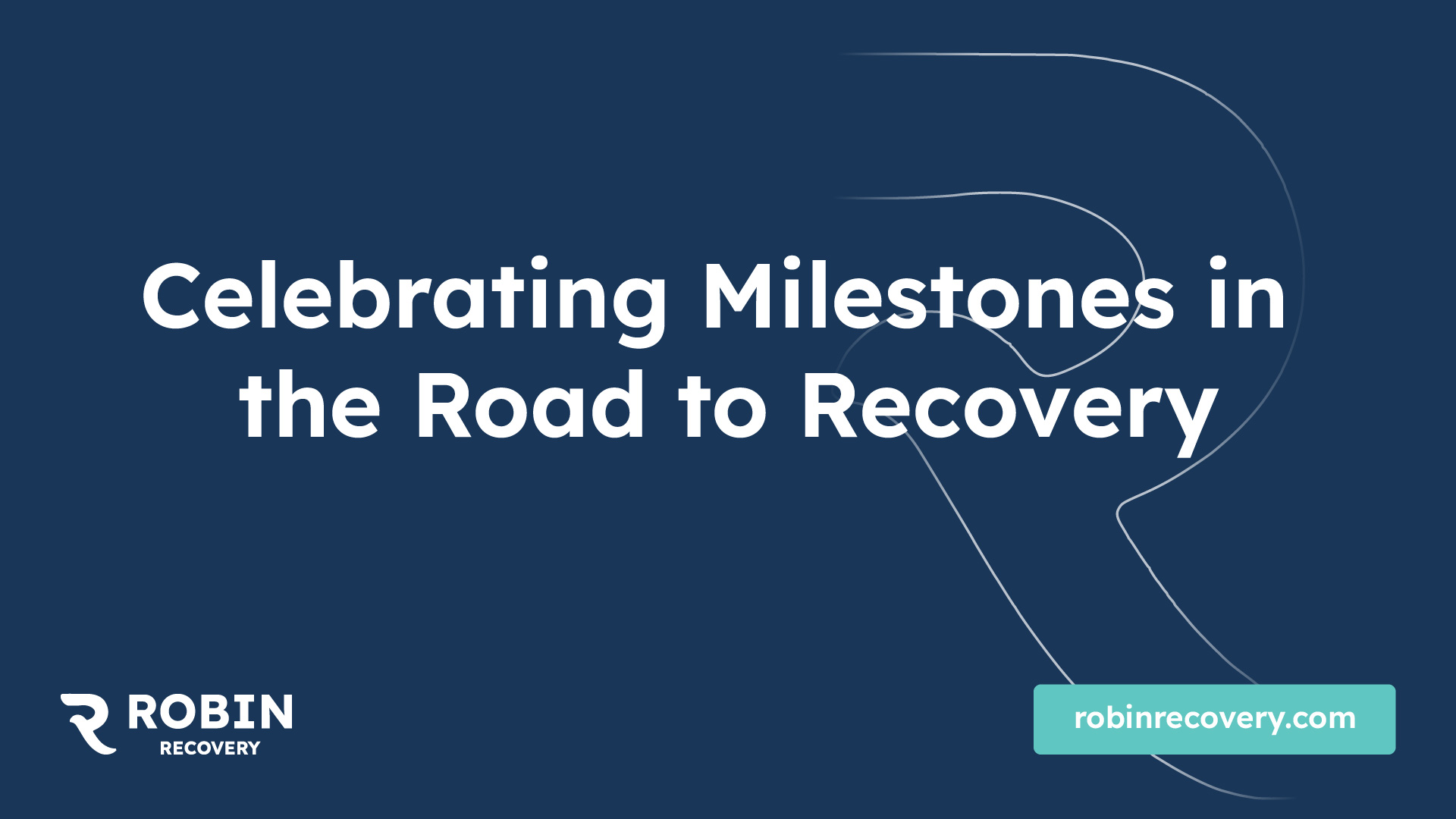Celebrating Milestones in the Road to Recovery

Understanding Recovery Milestones
Recognizing and celebrating milestones is an essential part of the recovery journey from addiction. These milestones serve as markers of progress, reinforcing the belief that positive change is achievable.

Significance of Celebrating Achievements
Celebrating milestones in recovery has a profound impact on an individual's self-confidence. Each achievement serves as a testament to strength, resilience, and determination to overcome addiction. This acknowledgment boosts self-esteem and reinforces the notion that ongoing progress is possible [1].
Additionally, the significance of these celebrations lies in the encouragement they provide. They serve as powerful reminders of how far one has come, fostering a positive outlook on the future. Milestones can signify different achievements, such as completing a treatment program, maintaining sobriety for a defined period, or successfully navigating life's challenges without resorting to substance use.
Benefits of Acknowledging Progress
Recognizing and celebrating milestones in recovery can lead to numerous benefits that contribute to overall well-being and motivation. Acknowledgment of achievements provides a sense of accomplishment, vital for maintaining momentum in recovery [1].
BenefitDescriptionSense of AccomplishmentAchieving milestones reinforces feelings of success and progress.MotivationCelebrations inspire individuals to continue pursuing their recovery goals.EncouragementRecognition of achievements boosts morale and confidence in the recovery process.EmpowermentCelebrating progress fosters a sense of control and optimism for the future.
Milestone celebrations also strengthen mental health by building resilience and confidence. They provide tangible reminders of the progress made, reinforcing the belief that recovery can lead to lasting positive change [1].
Understanding the importance of celebrating milestones is fundamental for anyone working towards healing and sobriety. Recognition of these achievements not only acknowledges progress but also inspires individuals to continue overcoming challenges on their recovery journey [2].
Psychological Impact of Milestone Celebrations
Celebrating milestones in recovery plays a crucial role in fostering positive psychological outcomes. It not only boosts self-confidence but also fosters hope and resilience among individuals facing the challenges of addiction.
Boosting Self-Confidence
Recognizing and celebrating milestones significantly enhances self-esteem among individuals recovering from addiction. By acknowledging their achievements, they develop a sense of self-worth and view themselves in a more positive light. This reinforcement of competence and mastery is essential for long-term success in recovery. Studies indicate that celebrating milestones can lead to an increased belief in one's abilities, making individuals feel more empowered and capable of navigating their recovery journey.
Psychological BenefitDescriptionBoosted Self-EsteemAcknowledging achievements reinforces positive self-perception.Increased MotivationRecognizing progress motivates individuals to continue their efforts.Sense of AccomplishmentCelebrating successes fosters a feeling of competence.
These benefits contribute to the overarching theme of the importance of celebrating milestones in recovery, emphasizing that individuals can enjoy a life free from substances.
Fostering Hope and Resilience
Milestone celebrations also play a vital role in fostering hope and resilience. By commemorating achievements, individuals can visualize their progress and envision a brighter future. These celebrations create an environment where individuals feel supported, reducing feelings of isolation often associated with addiction.
Celebrating milestones is instrumental in breaking down stigma and encourages a supportive community. This profound involvement creates an atmosphere where recovery is not only seen as possible but also enriching and rewarding. With an increased sense of hope, individuals are more likely to persist in their recovery efforts despite setbacks.
Psychological BenefitDescriptionEnhanced HopeRecognizing achievements helps individuals envision a positive future.Increased ResilienceCelebrating progress cultivates strength to overcome challenges.Community SupportBreaking down stigma encourages support from others.
Through these celebrations, individuals gain encouragement and inspiration, not only for themselves but also for their loved ones. The collective support enhances morale and reaffirms that recovery is a journey worth taking. For more insights, consider exploring related topics such as breaking the cycle of addiction in families and how pets can help with the recovery process.
Types of Recovery Milestones
Recognizing and celebrating recovery milestones plays a vital role in the journey of overcoming addiction. These milestones can be categorized into two primary types: time-based milestones and behavioral achievements. Each type serves to highlight different aspects of progress and contributes to the overall success of the recovery process.
Time-Based Milestones
Time-based milestones are significant markers that reflect the duration of sobriety. Celebrating these achievements allows individuals to acknowledge the time they have spent in recovery, promoting a sense of accomplishment and motivation. Key time-based milestones often include:
MilestoneDurationFirst 24 Hours1 dayFirst Week7 daysFirst Month30 days90 Days3 months6 Months6 months1 Year12 months
According to New Horizons Centers, each of these milestones can provide individuals with not only a sense of achievement but also motivation to continue their journey. Just starting the recovery journey is a milestone in itself that should not be underestimated. Celebrating these time intervals reinforces the commitment to sobriety and helps build confidence and self-esteem, as noted by BOLD Health Inc.
Behavioral Achievements
Behavioral achievements encompass milestones that focus on changes in actions, habits, and emotional responses. These pivotal moments signify personal growth and the ability to manage triggers and cravings without resorting to substances. Recognizing these achievements reinforces the positive changes made in daily life.
Examples of behavioral achievements include:
Acknowledging these milestones not only bolsters the efforts in recovery but also imbues individuals with a sense of accomplishment. Celebrating milestones can take various forms, such as organizing a gathering or participating in meaningful activities, as suggested by Free By The Sea.
In sum, the importance of celebrating milestones in recovery cannot be understated. Both time-based milestones and behavioral achievements collectively contribute to a healthier mindset, encouraging ongoing success in the journey to sobriety. For further information on the recovery process, see our articles about how pets can help with the recovery process, or the impact of social media on recovery how social media impacts addiction recovery.
Importance of Community Support
Role of Support Networks
Support networks play a critical role in the recovery journey, particularly during milestone celebrations. Celebrating milestones in recovery helps remind individuals that progress is possible and they can overcome challenges. Each milestone signifies a significant step forward in the healing process, whether it be completing a day of sobriety or reaching a year of recovery [3]. When friends, family, and peers come together to celebrate these accomplishments, it strengthens the bonds within the recovery community.
Celebrations don't just highlight personal achievements; they also contribute to the collective strength of the group. They emphasize the importance of shared experiences and mutual support in overcoming addiction and fostering long-term recovery [4]. Individuals often find inspiration and motivation through the encouragement of their support networks, reinforcing their commitment to recovery and their goals.
Support Network RolesBenefitsFriends and FamilyProvide emotional support and encouragementRecovery GroupsOffer shared experiences and accountabilityCounselorsFacilitate coping strategies and healing
Inspiring and Motivating Others
Celebrating recovery milestones creates a supportive environment where experiences can be shared, empathy can be fostered, and a sense of belongingness can be established. These celebrations inspire and give hope to others who are just starting their own recovery journeys. They demonstrate that transformation is possible and that every step forward, no matter how small, is worth recognizing [5].
When individuals witness others celebrating their achievements, it serves as a beacon of light. This sight can uplift those who may be struggling, illustrating that recovery is achievable [6]. The act of celebrating milestones fosters camaraderie, encouragement, and a sense of community, reinforcing the belief that individuals are not alone in their journeys.
Ultimately, the impact of inspiring others through celebrating milestones contributes to a supportive environment and ongoing progress in recovery efforts. Recognizing achievements not only reinforces an individual's accomplishments but also nurtures a community that plays a significant role in sustaining motivation and determination throughout the recovery process.
Strategies for Celebrating Milestones
Recognizing milestones in recovery is essential for maintaining motivation and a sense of purpose. The importance of celebrating milestones in recovery goes beyond mere acknowledgment; it solidifies progress and helps individuals visualize their journey. There are various strategies available for celebrating these significant achievements, categorized into individual and group celebrations.
Individual Celebrations
Individual celebrations provide an opportunity for personal reflection and self-recognition. These can involve simple yet meaningful gestures to mark significant milestones. Some ideas for individual celebrations include:
These individual practices help to celebrate personal achievements and solidify the commitment to recovery, serving as a reminder that progress is possible and challenges can be overcome, as highlighted by BOLD Health Inc.
Group Celebrations
Group celebrations foster a sense of community and shared achievement. Involving friends, family, or support groups in celebrations can enhance motivation and commitment to recovery. Some popular ways to celebrate as a group include:
These communal activities provide essential support and motivation, allowing individuals to share their victories with others who understand their journey. Group celebrations also serve to inspire and motivate peers along their recovery paths, as noted by Arista Recovery.
Both individual and group celebrations play significant roles in reinforcing an individual’s commitment to sobriety. Celebrating achievements, no matter how small, serves to motivate and encourage continued progress throughout the recovery journey.
Reflecting on Progress and Growth
Reflecting on milestones in the recovery journey is an essential aspect that contributes to personal insight and growth.
Personal Insight and Growth
Acknowledging achievements during recovery celebrations plays a crucial role in personal development. This reflection allows individuals to recognize the struggles they have overcome, fostering a deeper sense of gratitude and reinforcing their commitment to continuing their recovery journey. By understanding what strategies have been effective, individuals can identify areas where additional support may be needed [7].
The act of reflecting helps to boost self-esteem and confidence, as individuals begin to appreciate how far they have come in their sobriety journey. This appreciation serves as a powerful reminder of their capabilities, reinforcing their sense of competence and mastery over addiction. As outlined by Elev8 Centers, such milestones significantly enhance self-esteem, which is essential for long-term success in recovery [8].
Maintaining Motivation and Determination
Celebrating recovery milestones also fosters motivation and determination. Individuals can use these moments to set new objectives and renew their sense of purpose, creating a roadmap for continued growth and personal development. Recognizing past accomplishments provides context for future goals, inspiring individuals to pursue new aspirations.
Moreover, personal reflections can significantly influence the supportive community of those in recovery. When individuals share their successes and progress, it serves to inspire others on similar journeys, validating their experiences and encouraging them to keep pushing forward [6].
Through continuous reflection, individuals not only enhance their own recovery process but also contribute to a collective understanding of the recovery journey, reinforcing the importance of celebrating milestones along the way.
References
[2]:
[3]:
[4]:
[5]:
[6]:
[7]:
[8]:
